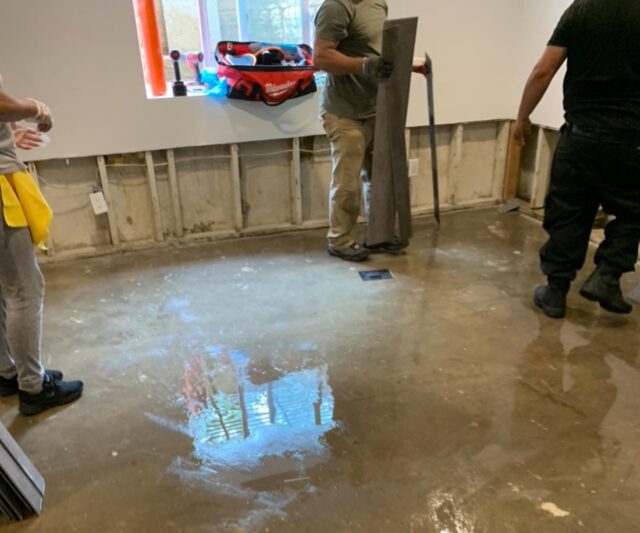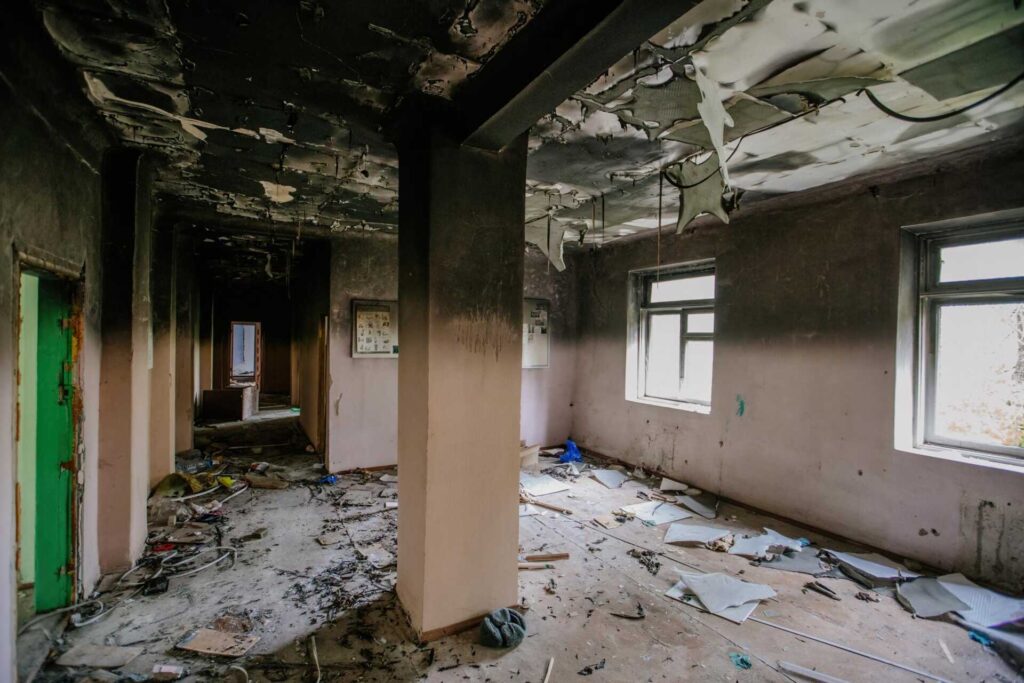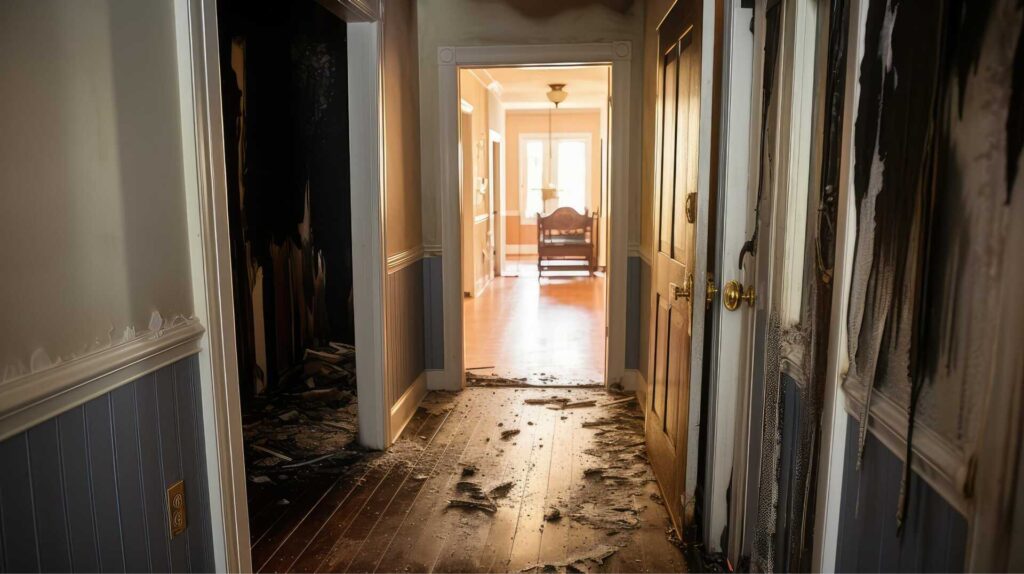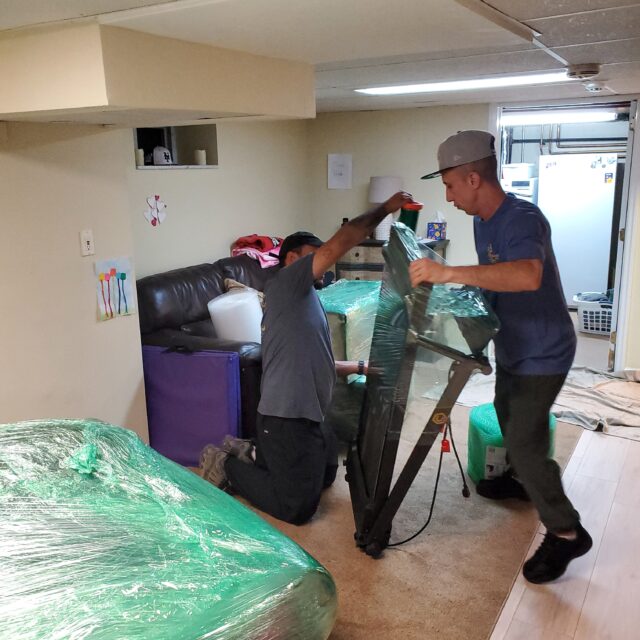
Contents
As winter descends upon Long Island, it’s a time of cozy fires and hot cocoa. However, it’s also a season when your home’s plumbing system can be vulnerable to various issues that may lead to water damage if not addressed promptly. Bright Side Restoration, Inc., a trusted water damage restoration company in Long Island, NY, has provided essential insights into the potential plumbing problems and preventive measures that can save your home from winter water damage.
Understanding the Risks of Plumbing Related Residential Water Damage
When the temperatures drop, your plumbing system can become susceptible to a range of issues, some of which have the potential to cause significant water damage. Here’s a closer look at the most common plumbing problems during the winter months:
1. Frozen Pipes: The Hidden Time Bomb
Frozen pipes are perhaps the most dreaded plumbing problem during winter. When water inside your pipes freezes, it expands, creating immense pressure. This can lead to the pipes bursting, resulting in extensive water damage when the ice thaws and water begins to flow again. The key to preventing frozen pipes is proper insulation and keeping your home adequately heated. Identify and insulate any pipes exposed to cold temperatures, particularly those in unheated areas like crawlspaces, attics, or outside walls.
2. Leaking Pipes: Quiet Dripping Danger
Cold temperatures can cause pipes to contract and expand, increasing the risk of cracks or leaks. Even minor leaks can gradually lead to water damage to your home’s walls, ceilings, and floors. Regularly inspect your plumbing for any signs of leaks, drips, or weak spots. Timely detection and repair of leaks can save you from major headaches down the road.
3. Burst Water Heaters: Underestimated Risk
Water heaters work harder in cold weather, potentially leading to strain on older or poorly maintained units. In extreme cases, this can result in leaks or even bursting, causing considerable water damage. Regularly inspect your water heater, drain sediment from it, and consider insulating it with a specially designed jacket. Replacing an aging water heater before it fails can be a wise investment in preventing water damage.
4. Ice Dams: Attic Troubles
Ice dams are a phenomenon that can wreak havoc on your roof and home. They form when snow on the roof melts and then refreezes at the eaves. As ice accumulates, it can block the flow of melting snow, causing water to back up under the roof shingles and potentially penetrate your home. Proper insulation and ventilation in the attic can help prevent ice dams from forming and safeguard your home from the damage they can cause.
5. Clogged Drains: Gutter Nightmares
During winter, debris like leaves and twigs can accumulate in gutters and downspouts, obstructing the flow of water. This can lead to water overflowing and potentially entering your home. Regularly clean and maintain your gutters to ensure proper drainage. Preventing clogged drains can be as simple as routine maintenance.
6. Faulty or Frozen Outdoor Faucets: Exterior Vulnerability
Exterior faucets can freeze and burst if not properly insulated or drained during cold weather. This can result in water damage to the exterior walls and foundation of your home. To prevent this, disconnect and drain outdoor hoses before winter sets in, and install insulated faucet covers. Additionally, if your home has a separate shut-off valve for outdoor faucets, turn it off and drain the water from the lines.
7. Poorly Insulated Crawlspaces or Basements: Chilled Foundations
Inadequate insulation and poor ventilation in these areas can lead to cold temperatures, causing pipes to freeze and burst. Properly insulating and ventilating crawlspaces and basements can help maintain a stable temperature and protect your plumbing system from winter-related damage.
8. Cracked or Damaged Foundation: Unseen Consequences
Cold weather can cause the soil around your home’s foundation to expand and contract, potentially leading to cracks. These cracks can allow water to enter your basement or crawl space, resulting in water damage. Regularly inspect your foundation for any signs of damage, such as cracks or shifts, and address them promptly.
Preventing Winter Plumbing Mishaps From Causing Costly Water Damage
To avoid the nightmare of water damage during the winter months, it’s essential to take proactive steps to maintain your plumbing system and protect your home from freezing temperatures. Here’s a comprehensive guide to winter plumbing maintenance:
1. Insulate Exposed Pipes:
Identify and insulate pipes exposed to cold temperatures, especially those in unheated areas.
Use pipe insulation sleeves or heat tape to wrap and insulate these pipes.
Pay special attention to pipes near exterior walls, as they are more susceptible to freezing.
2. Keep Your Home Warm:
Maintain a consistent indoor temperature, especially during cold snaps. Adequate heating helps prevent pipes from freezing.
If you plan to be away from home during the winter, keep the heat on at a minimum level to ensure your pipes don’t freeze.
3. Seal Leaks and Cracks:
Inspect your home for any gaps, cracks, or holes in walls, windows, and doors that could allow cold air to infiltrate. Seal these openings with caulk or weatherstripping.
Check for gaps or openings around pipes where they enter your home and seal them to prevent cold drafts.
4. Outdoor Plumbing and Faucets:
Disconnect and drain outdoor hoses, and store them in a dry place.
Install insulated faucet covers on outdoor spigots to protect them from freezing.
If your home has a separate shut-off valve for outdoor faucets, turn it off and drain the water from the lines.
5. Regular Inspections:
Periodically inspect your plumbing system throughout the winter to check for leaks, drips, or signs of moisture in your home.
Look for any unusual sounds, such as banging or knocking, which can be indicative of pipe issues.
6. Drain and Protect Water Heaters:
Drain sediment from your water heater to improve its efficiency and extend its lifespan.
Consider insulating your water heater with a specially designed jacket to help retain heat.
7. Emergency Shut-Off Valves:
Make sure you know the location of your main water shut-off valve. In case of a burst pipe, you can quickly turn off the water to prevent further damage.
8. Emergency Preparedness:
Have a plan in place for what to do in case of frozen pipes or a burst pipe. Knowing how to respond can minimize damage.
9. Professional Inspection:
Consider hiring a professional plumber for a thorough inspection of your plumbing system before winter sets in. They can identify and address any potential issues.
10. Keep Faucets Dripping:
In extremely cold conditions, leaving a faucet dripping slowly can help prevent freezing by allowing water to flow through the pipes.
By following these maintenance steps and being proactive in protecting your plumbing system, you can significantly reduce the risk of water damage during the winter months. Remember that early prevention is key to avoiding costly repairs and the inconvenience of dealing with burst pipes or leaks in freezing temperatures.
Conclusion
As winter brings its unique set of challenges to your home’s plumbing system, taking preventive measures and staying vigilant can save you from the headaches and expenses associated with water damage. Bright Side Restoration, Inc. emphasizes the importance of winter plumbing maintenance and encourages homeowners to prioritize these steps. By doing so, you can enjoy a worry-free winter season filled with warmth, comfort, and peace of mind.



